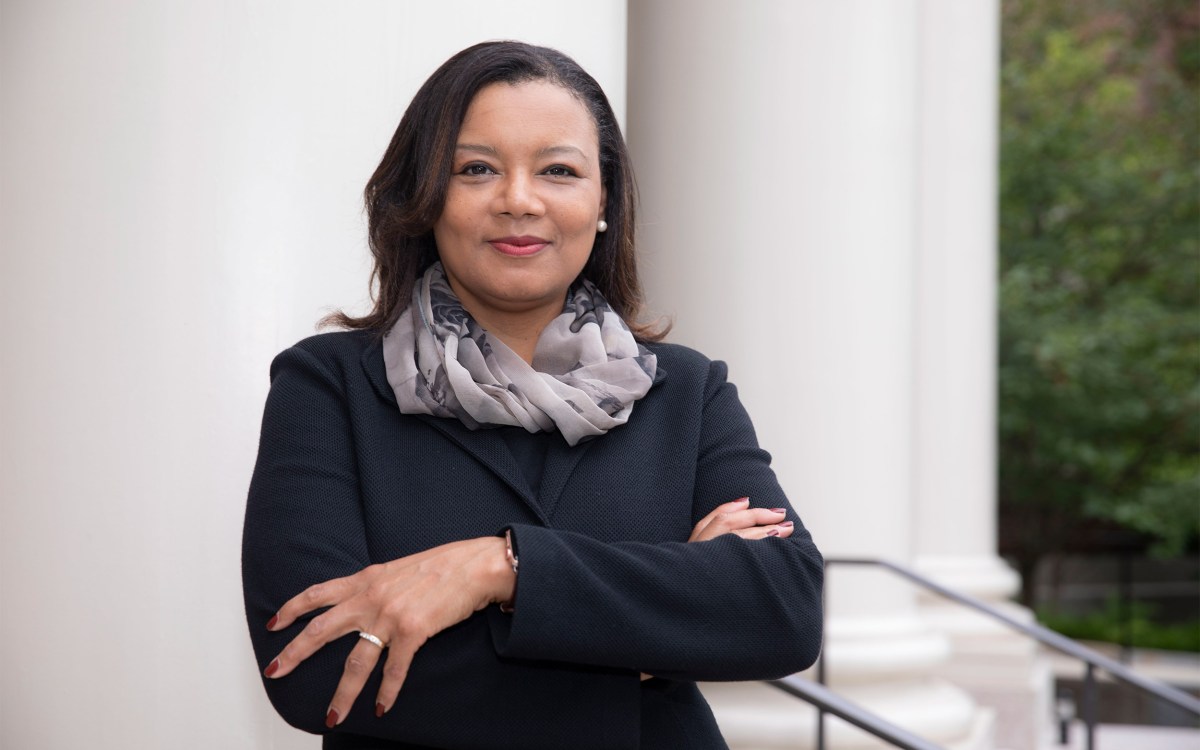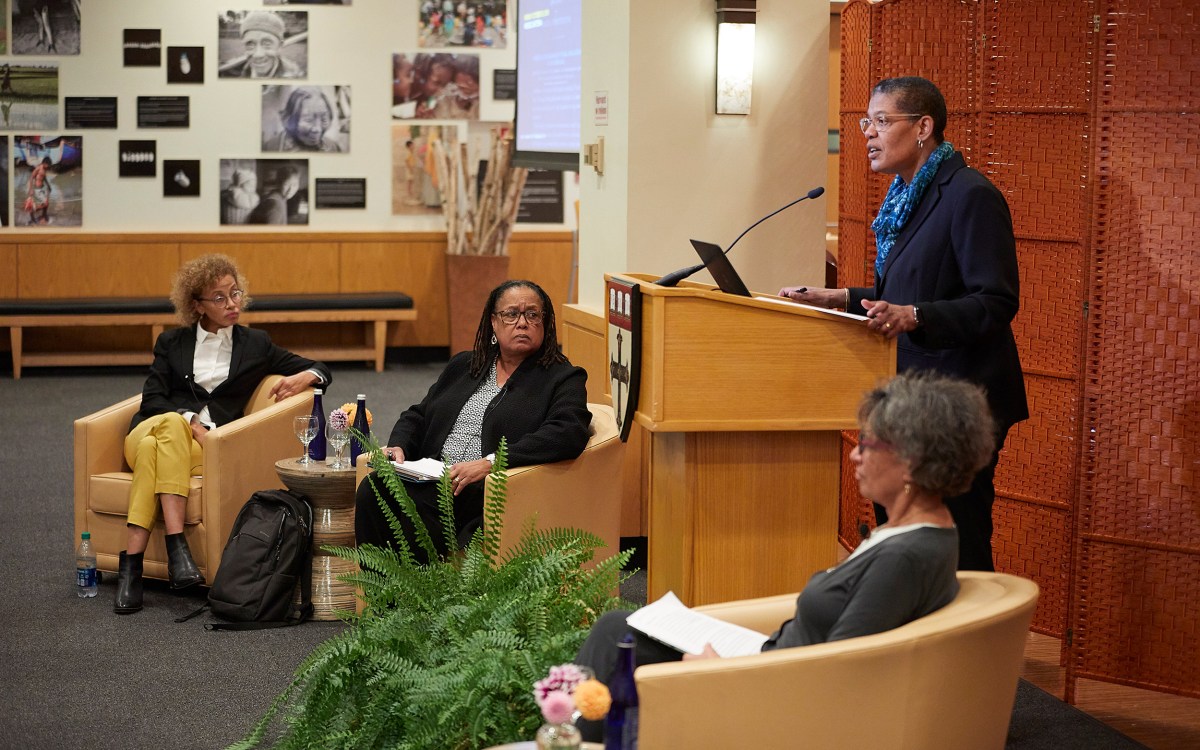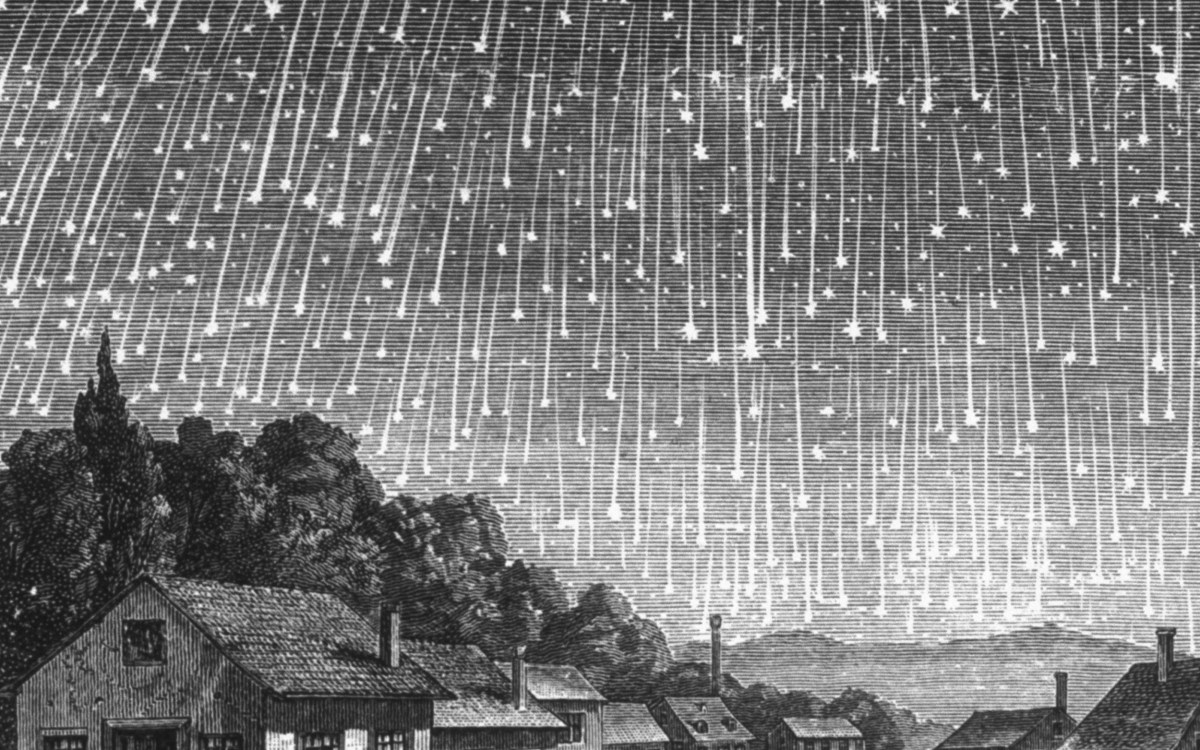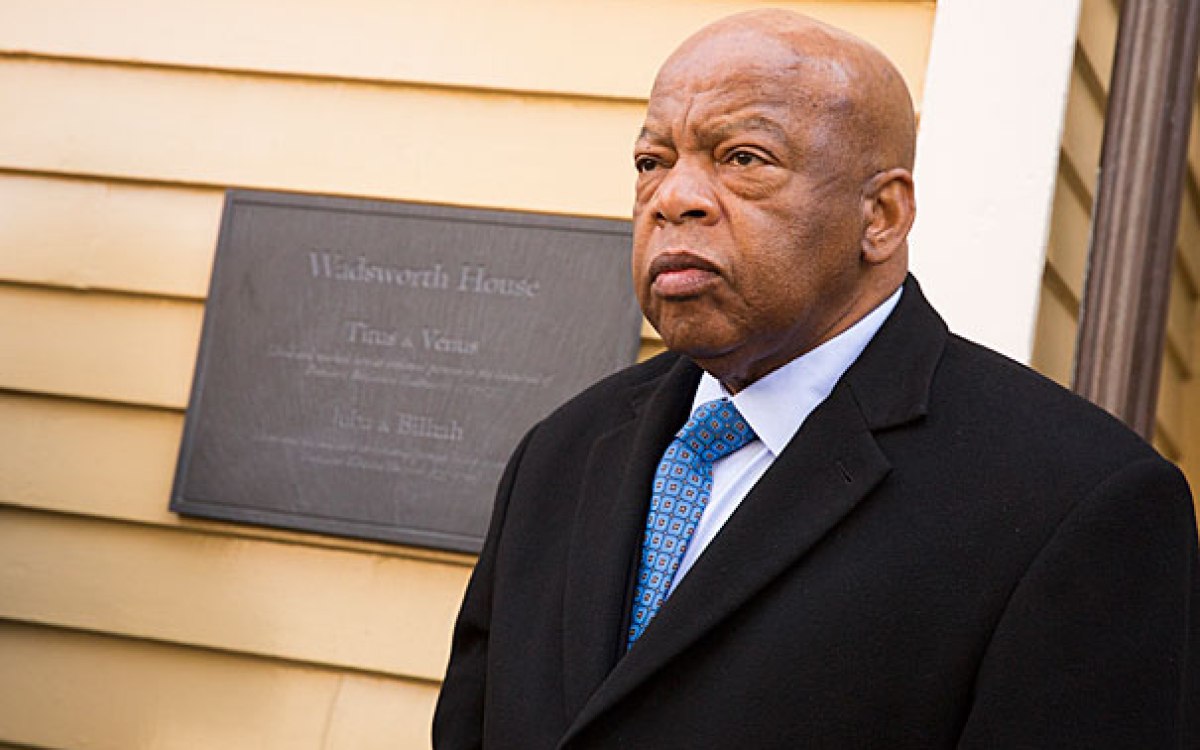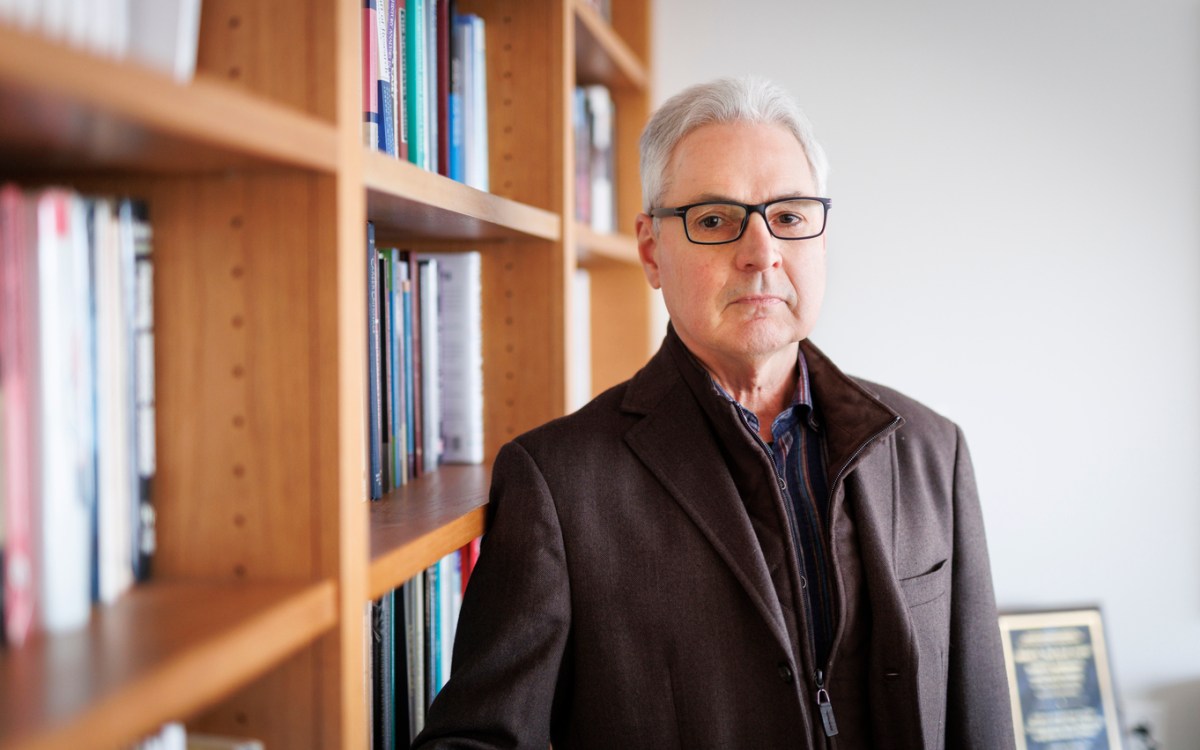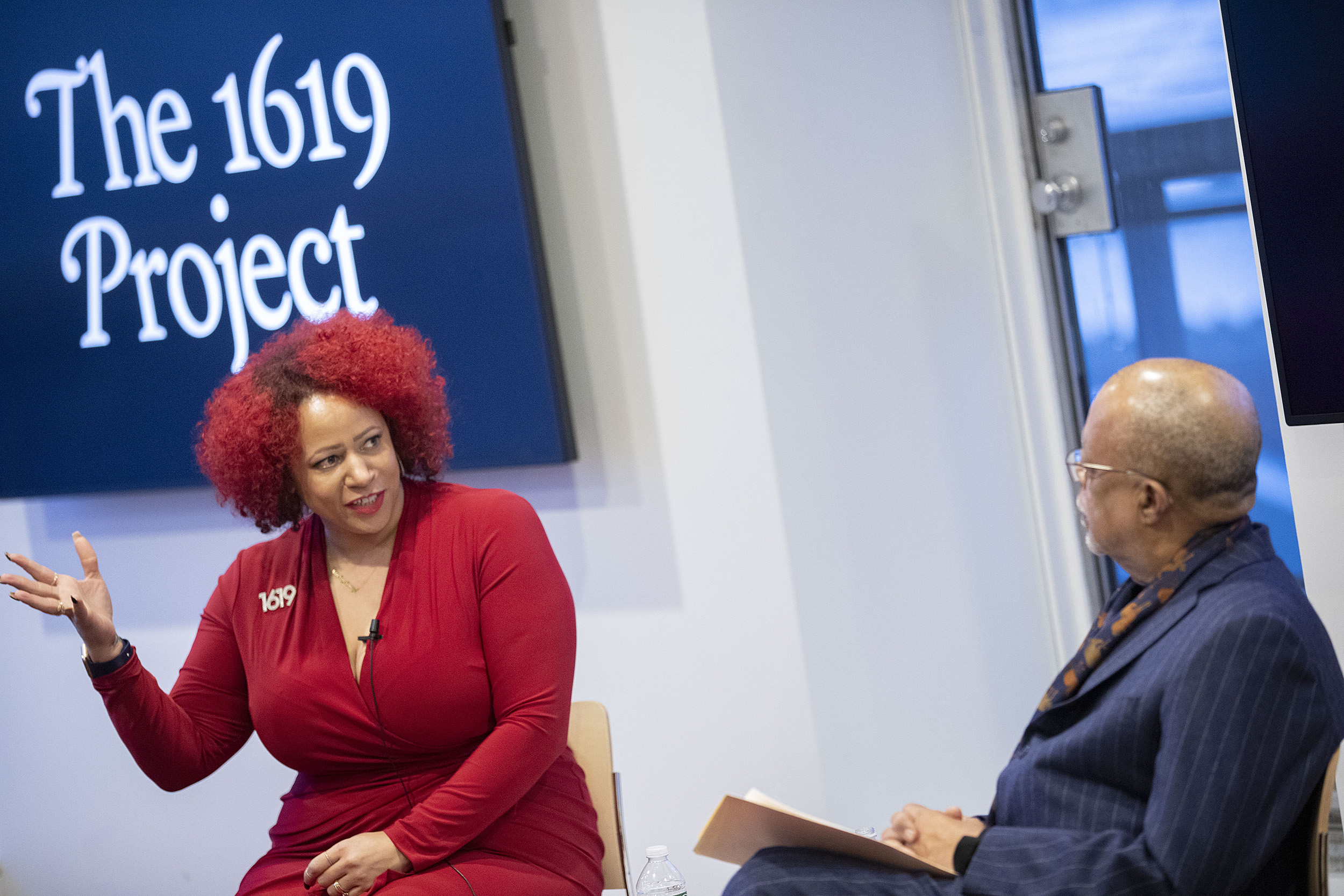
Nikole Hannah-Jones shares a behind-the-scenes view of the 1619 Project with Henry Louis Gates Jr.
Photos by Kris Snibbe/Harvard Staff Photographer
Twitter and the birth of the 1619 Project
Nikole Hannah-Jones of N.Y. Times describes the evolution of the landmark reconsideration of slavery’s place in American history
New York Times investigative journalist Nikole Hannah-Jones spearheaded the 1619 Project, a landmark initiative unveiled this summer that marked the 400th anniversary of the arrival of the first enslaved Africans in Britain’s mainland North American colonies.
During a visit to Harvard this week, she made a surprising disclosure: While she had considering the project for years beforehand, its development was partly prompted by an exchange on Twitter.
“I got into an argument where someone said, ‘Slavery was a long time ago. Why don’t you get over it?’” she said Wednesday evening in a discussion with Henry Louis Gates Jr., director of the Hutchins Center for African & African American Research at Harvard. The talk drew a capacity crowd to the Smith Campus Center. “I realized we couldn’t get over it because America hasn’t gotten over it, and nobody wants to get over it more than black folks.”
This interaction, she said, led her to think about how slavery and its legacy have often been erased from the nation’s history. “Everyone in high school knows about the Mayflower, but nobody has been taught about the other ship, the White Lion,” she said, referring to the first English ship that brought enslaved Africans to the colonies in 1619. “I thought that an anniversary was approaching that most Americans would never hear of. Like most of black history, it would pass without most of us knowing.”
Originally published as a special issue of The New York Times Magazine on Aug. 14, the 1619 Project was later expanded in the paper and its website, and Hannah-Jones said that she is now working on a book version. Her talk with Gates focused on the evolution of the initiative. As she recalled, the magazine’s editor in chief, Jake Silverstein, proved receptive when she proposed that an entire issue of the magazine be devoted to the issue of slavery.
“I had been thinking about this and reading obsessively for 25 years about all the inequalities in American life that can be traced back to slavery. So I came in with an idea that they hadn’t heard before, and by then I had gathered enough trust that they knew I could deliver on what I promised.”
The idea also got a lift because of the timing, she said. It might not have had the same impact had it come during the Obama administration. “It was The Times, the paper of record, making the argument that the system of racial slavery was at the bedrock of our founding. And it appeared at a moment in time when people were thinking, ‘How the hell did we get here?’”
“Everyone in high school knows about the Mayflower, but nobody has been taught about the other ship, the White Lion,” said Nikole Hannah-Jones of The New York Times.
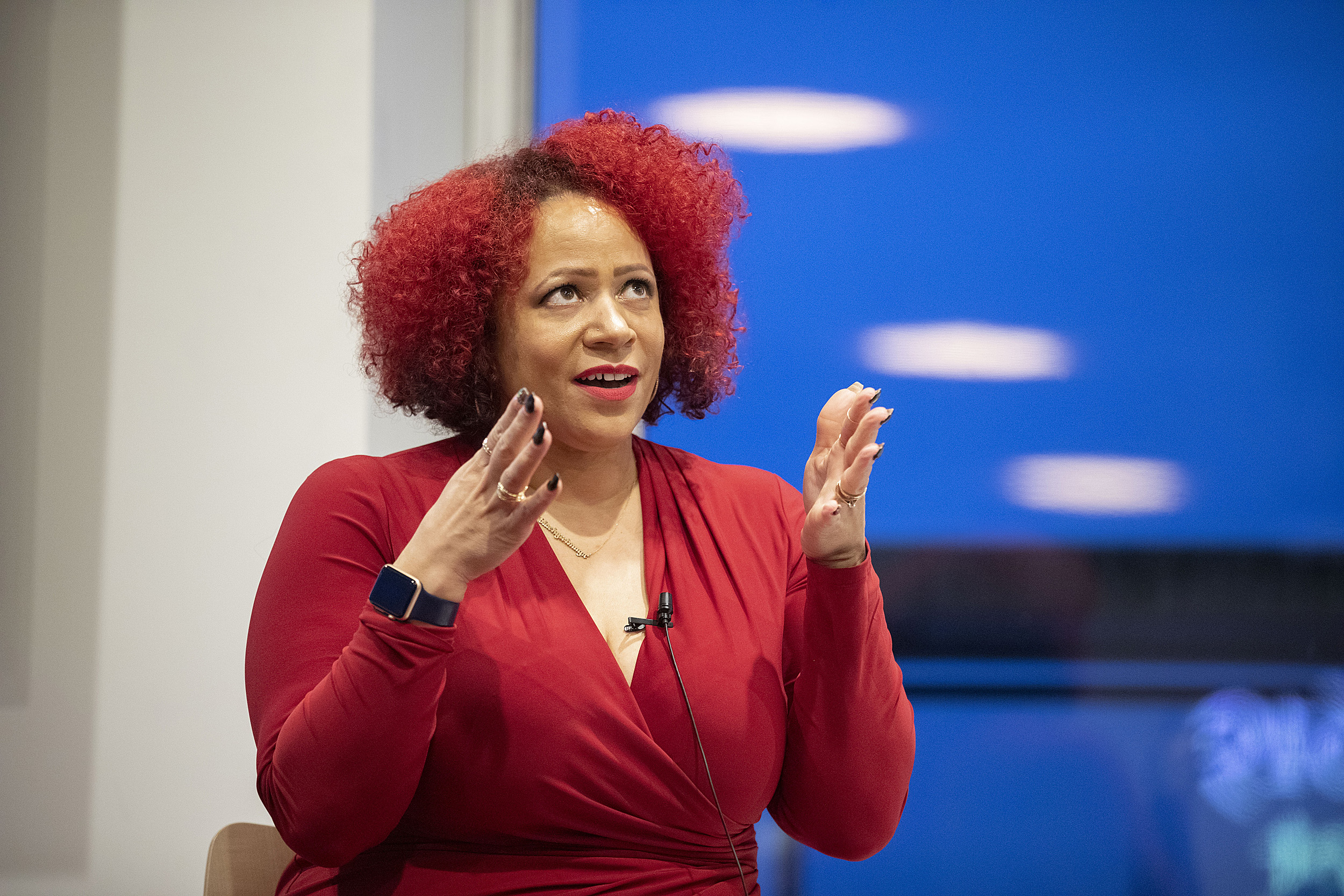
Gates brought up the backlash that emerged from conservative commentators, particularly Newt Gingrich, who asked why she hadn’t given more credit to the whites who fought slavery in the Civil War. “That is a valid argument, and when I think about areas where I wish we had provided more nuance, I think that is one,” she said. But on the other hand, “We can only give so much credit for fighting an institution that you created. We’ve heard plenty of stories of white heroism, about Abraham Lincoln as the Great Emancipator. Meanwhile there are [black] people who never get credit in any of this.”
The history of Boston and even Harvard also came in for some criticism. “[The narrative is] that the North was the true heart of America, and that allows us to have a sense of clean hands about our identity as Americans. But Boston was a slave market. And where did so much of this capital to build this institution and the Ivy League come from? It came because rich people were holding the collateral in enslaved bodies,” she said.
In response to an audience question, both panelists turned to the pitfalls of social media. “Anyone who engages knows how well it is designed for hostile interaction,” Hannah-Jones said. “When you’re a black woman you are at the intersection of two hatreds in this country, race and gender.” Gates recalled his own moment of viral celebrity, after he was arrested in 2009 for breaking into his own home. “I learned the hard way that there are a lot of organized hate groups out there,” he said. “You’d have to be a super person to [merit] all the vitriol that you see on Twitter exchanges. It’s put on you to defend yourself from the racists and the lunatics.”



